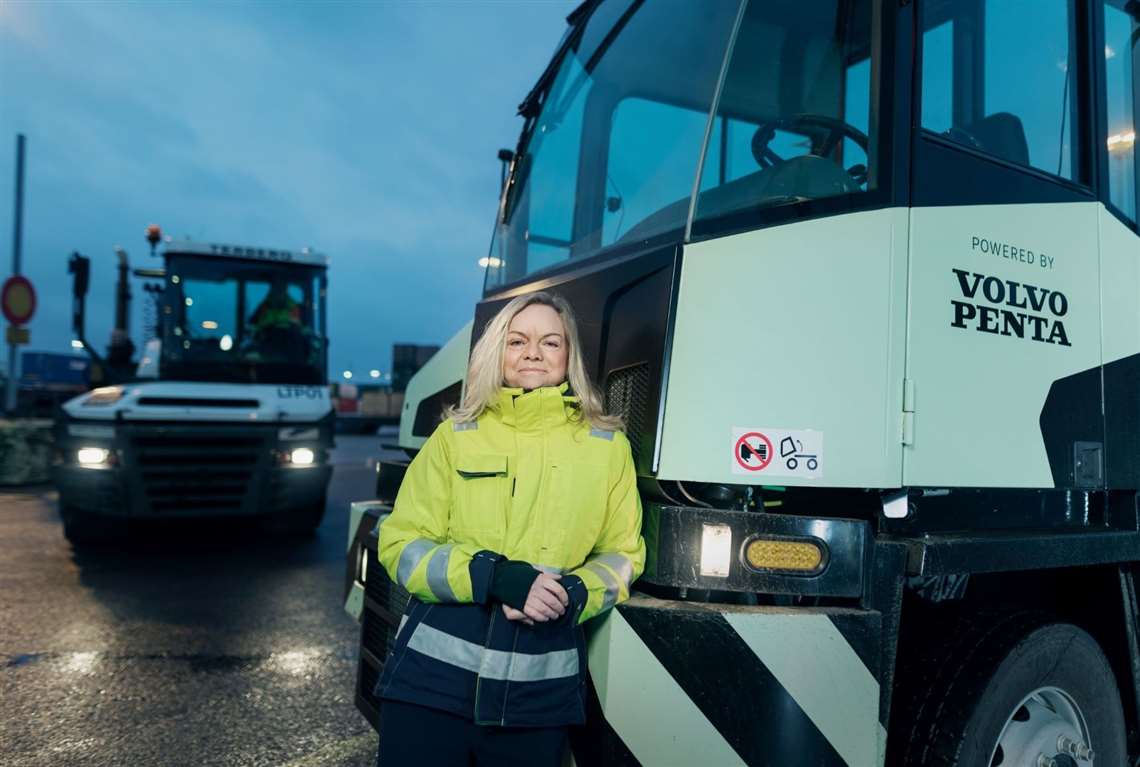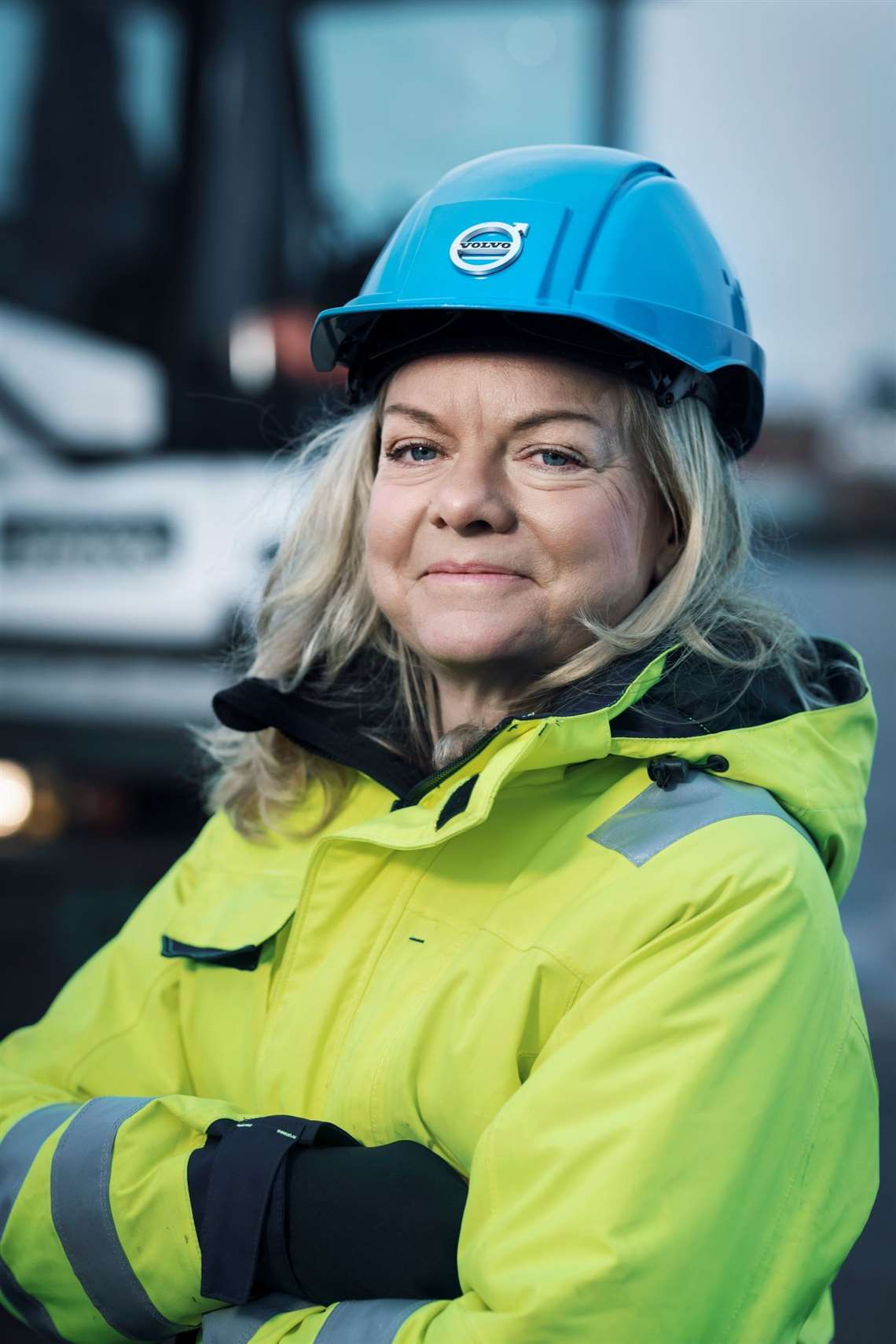Volvo Penta aims to branch out
08 March 2021
 Heléne Mellquist is the new president of Volvo Penta.
Heléne Mellquist is the new president of Volvo Penta.
By Ian Cameron
For Heléne Mellquist, the new president of Volvo Penta, some of the best management techniques she learned came from working in the family’s Swedish forestry business which it has owned since the 15th century.
And where better to learn about sustainability – a key focus of parent group Volvo – than in the timber industry where meeting existing demands can’t be at the expense of the future.
“The kitchen table was the boardroom and we took decisions there every day. This is where I learned about sustainability and where we worked with change all the time,” said Mellquist who recently took over from Björn Ingemanson, who has retired.
“And my father had a saying – “Rules are for people who cannot think”.
When it comes to championing sustainability and environmental responsibility, the Volvo Group is one of the more vociferous organizations and recently said it wanted to be a net-zero emissions company by 2050 at the latest. At year-end 2019 the group had reduced carbon dioxide emissions per shipped volumes in its own freight transport system by 18% from a baseline in 2013.
AN ACCELERATED JOURNEY
Last month Mellquist described Penta as being on “an accelerated transformation journey.”
“For a long time we all thought that diesel was going to be here for a very long time but there are many other things which are being accelerated now,” she said.
“But given Volvo Group’s commitment to net-zero emissions that means, in reality, we will stop selling diesel engines from 2040.
“I think that is really good because all of our customers are also looking at things the same way as we do. We are going ahead hand in hand with them and we are also a guide for them to become their natural partner. Everyone has the same aims but there are different paces in different industries.
“We will continue to develop the combustion engine and offer a very competitive product when it comes to fuel efficiency, total cost of ownership and up-time but at the same time we will also do the transformation journey and look into different new techniques such as electromobility and fuel cells and also other carbon dioxide-neutral fuels such as HVO (Hydrotreated Vegetable Oils) and hydrogen.
“We have invested a lot in diesel technology but now we need to accelerate and focus and get into electromobility investments and sustainable solutions.”
The strategy switch was underlined by the seemingly sudden decision by Volvo Penta to phase out production of its Seven Marine outboard engine range – just nine months after moving assembly of them into its facility in Lexington, Tennessee, USA.
Sales and marketing of the 393 to 467 kW gasoline engines will cease from January 2021 with production ending once customer demand is met. Volvo Penta only acquired Seven Marine in 2017.
Mellquist said she would rather “put money into sustainable solutions because outboards are completely unregulated.”
She added: “We will continue to invest to make our diesels better and more carbon dioxide-friendly as well as investing more in our Inboard Propulsion System solution. That is where I want to focus rather than on something that is unregulated.”
ELECTRIC DRIVELINE
Typical of Volvo Penta’s new focus was its development of an electric driveline for fire service vehicle manufacturer Rosenbauer’s fire truck, providing a new solution with zero exhaust emissions and significantly reduced noise levels. The truck – named “Revolutionary Technology” (RT) – is currently undergoing real-world customer testing with fire departments in Berlin, Amsterdam and Dubai.
 “We will continue to develop the combustion engine and offer a very competitive product when it comes to fuel efficiency, total cost of ownership and up-time but at the same time we will also do the transformation journey and look into different new techniques such as electromobility and fuel cells and also other carbon dioxide-neutral fuels such as HVO (Hydrotreated Vegetable Oils) and hydrogen.” - Heléne Mellquist, Volvo Penta
“We will continue to develop the combustion engine and offer a very competitive product when it comes to fuel efficiency, total cost of ownership and up-time but at the same time we will also do the transformation journey and look into different new techniques such as electromobility and fuel cells and also other carbon dioxide-neutral fuels such as HVO (Hydrotreated Vegetable Oils) and hydrogen.” - Heléne Mellquist, Volvo Penta
Mellquist began her career at Volvo Group in 1988 and has held many senior positions at the company. She also had a spell outside the group as chief executive officer at Swedish marine logistics company Transatlantic AB between 2012-2015 before returning to Volvo.
As well as being a director of Swedish heat transfer, separation and fluid handling specialist Alfa Laval, Mellquist arrives at Penta from her previous role as president of Volvo Trucks Europe.
She sees an opportunity to inject some of the technical breakthroughs and developments in the truck sector, such as connectivity and digitalisation, into Penta’s world of gen-sets, engines and propulsion systems.
“Technically the truck side of Volvo is a bit ahead of Volvo Penta but it has technologies we can use as we look ahead.
“Volvo Penta is a sizeable company but is agile and customer focussed and has short decision routes.”
Naturally, Volvo Penta was battered by COVID-19 and it is expected that sales for 2020, compared to the previous year, will be 13% down. But Mellquist adds that the virus hasn’t caused “an enormous impact. The Scandinavian love of boating provided something of a business buffer for the company’s marine division compared with the industrial side as marine enthusiasts headed for the water.
With a future order book described by Mellquist as currently “quite good” she says she is excited by the global sales potential for Penta.
“We have a growth agenda and will be very active in all of our segments and we have a rich portfolio of products. There are some regions in particular which are very interesting such as Asia and where our market share is not, yet, big. North America is also a growth area for us, but Asia has the really big potential for growth potential – predominantly on the industrial side with gen-sets.
“Marine commercial opportunities will also be an interesting area for us and our concepts would be really relevant for vessels such as pilots, coastguard ferries and police.”
SWEDISH AND DEMOCRATIC
And how would you describe your management style?
“Very Swedish and democratic. I give targets and direction, but I expect people to find their own of own way of meeting them.”
And could her father’s saying about rules ever be the new Volvo Penta motto?
“Yes, to some extent. There are so many things that are set in place in business, but they can be questioned.”
This story originally appeared in the January-February issue of Diesel Progress International. For a free subscription, click here.
STAY CONNECTED




Receive the information you need when you need it through our world-leading magazines, newsletters and daily briefings.
POWER SOURCING GUIDE
The trusted reference and buyer’s guide for 83 years
The original “desktop search engine,” guiding nearly 10,000 users in more than 90 countries it is the primary reference for specifications and details on all the components that go into engine systems.
Visit Now
CONNECT WITH THE TEAM









